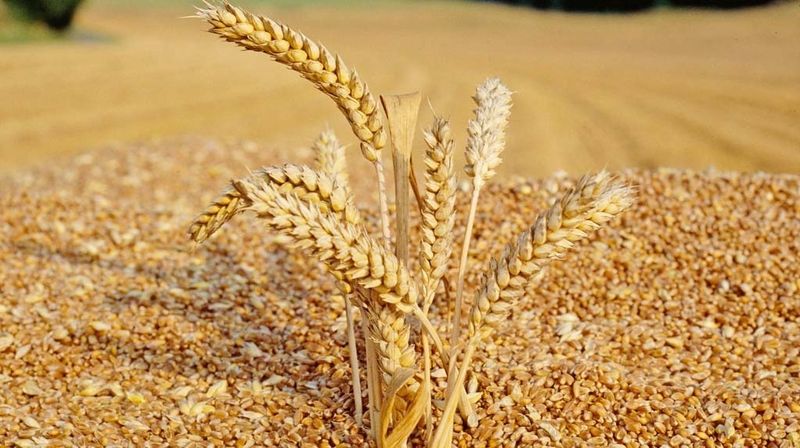Bangladesh risks missing domestic wheat collection target

The farmers are selling wheat at a higher price adjusted with the international market, so officials from the Directorate General of Food are unable to collect wheat at the government-fixed Tk 28 per kg price.
According to government data, the directorate began collecting wheat at the start of April as it did last year. It is scheduled to be wrapped up by Jun 30.
Last year, authorities could not collect wheat from Sylhet and Barishal divisions, yet the target was met.
The government set 147,000 tonnes as target putting aside wheat from Sylhet and Barishal divisions this year.
The target was fixed at 44,399 tonnes against 342,684 tonnes production in Rangpur, 60,038 tonnes against 464,677 tonnes production in Rajshahi, 20,995 tonnes against 163,572 tonnes production in Dhaka, 3,184 tonnes against 24,792 tonnes production in Mymensingh, 17,775 tonnes against 138,882 tonnes production in Khulna and 845 tonnes against 8,120 tonnes production in Chattogram.
According to food directorate accounts, only 23 tonnes of wheat have been collected as of May 23.
On the condition of not being named, a top official of the directorate said, “We can assume that the target to collect from internal sources will not be met considering the pace of collection.”
“But we never relied on internal sources. The food directorate buys 100,000 tonnes directly from the farmers to give them fair prices. But they are not selling to the directorate this year as wheat is more expensive in the open market.”
The government collects and distributes 600,000 to 700,000 tonnes of wheat for different rationing activities every year. Along with that, Bangladesh buys the rest of the wheat from the global market through international tender to meet demands.
Director General Md Shakhawat Hossain said, “Despite the rise in prices in the global market, the government faces no crisis in collecting wheat. In the current fiscal, we extended our target to 700,000 tonnes at the last moment though it was 500,000 tonnes initially”.
“After the market in Ukraine and Russia closed down, we last bought 200,000 tonnes of wheat from India. It is on its way.”
According to the website of the food ministry, about 20,000 tonnes of wheat are procured. However, the quantity is found to be zero by contacting some of the districts.
This year, in the northern districts of Rangpur and Thakurgaon, the target of 900 tonnes and 24,000 tonnes of wheat were set respectively, but no wheat could be collected even after one and a half months.
Riazur Rahman, a food officer in Rangpur, told bdnews24.com that the market price of wheat has been above Tk 34 per kg since the beginning of the season, while the government-fixed rate is Tk 28. “So the farmers are selling wheat in the open market instead of selling it to us”.
Monirul Islam, an official of the Thakurgaon district food department, said a total of 4 tonnes of wheat, 2 tonnes each, was deposited in the two Upazilas for formalities on the day of the inauguration ceremony at the beginning of the season. But after that, no more wheat could be collected.
“The market situation is very strong now with the price much higher than that set by the government. If the market price declines, then we [government] may get to collect it again. There is no possibility of obtaining wheat in the current situation,” Monirul said.
As per the stock situation on May 19, the government warehouse of food grains now has a total stock of 1.14 million tonnes of food. Of this, 1.04 (approximately) million tonnes of rice and 101,000 tonnes of wheat are there.
Read also
Wheat in Southern Brazil Impacted by Dry Weather and Frosts
Oilseed Industry. Leaders and Strategies in the Times of a Great Change
Black Sea & Danube Region: Oilseed and Vegoil Markets Within Ongoing Transfor...
Serbia. The drought will cause extremely high losses for farmers this year
2023/24 Safrinha Corn in Brazil 91% Harvested
Write to us
Our manager will contact you soon



